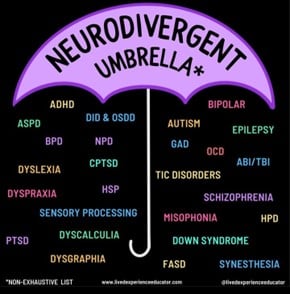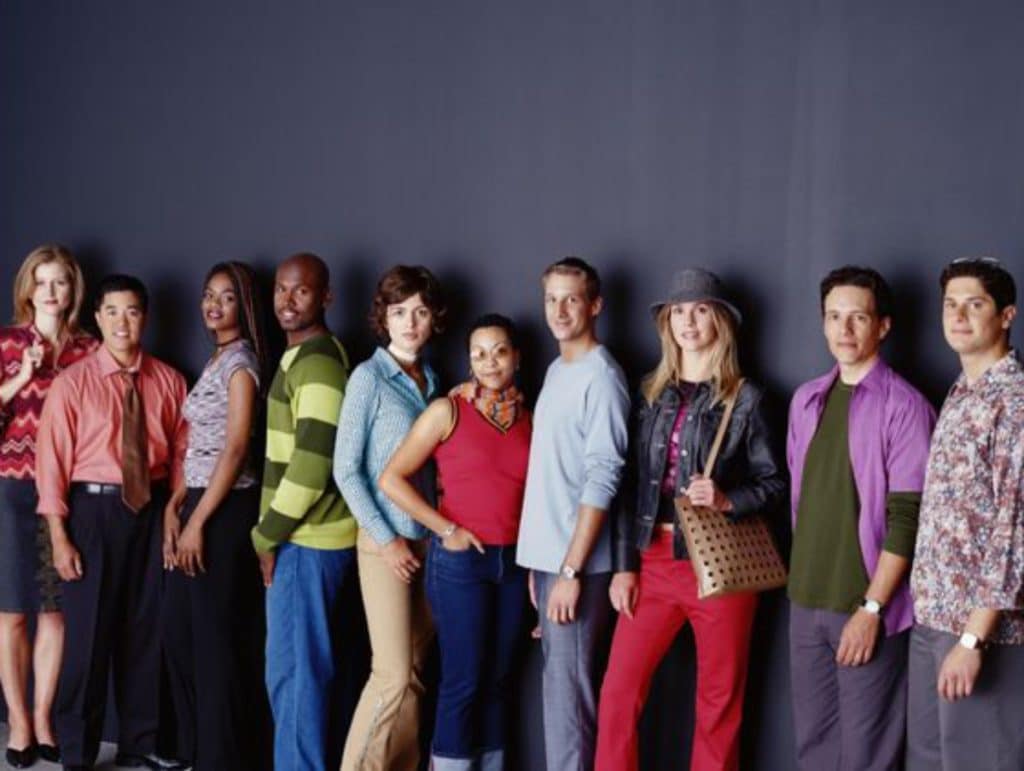As part of Neurodiversity Celebration Week, former Second Step colleague Dulseigh Pomerance-Trifts, who now works community interest company Inclusive Change, gives us a fascinating look at the world of work through neurodivergent eyes.
Wherever you work, it’s likely you’ll be working with a wide range of people in a wide range of settings. You may work in a team, or on your own, possibly you are working directly with clients, or you could be in a back-office role. Wherever you are within your organisation you will be working in a neurodiverse environment.
Our fabulous brain
Much like how biodiversity explains the wonderful variety of life in our ecosystems, neurodiversity describes the fabulous range of ways the brains around us function. The majority of brains can be seen as neurotypical (NT) or predominant neurotype (PNT). Then there are the neurodivergent (ND) people, like me with my bees in my head (aka ADHD!). There are many identities under the neurodivergent umbrella, as we can see in this infographic from Lived Experience Educator.

Myths and misconceptions about neurodivergent people
“You can always tell if someone is neurodivergent!”
Nope, everyone is unique. When you have met one neurodivergent person, you have met one person. We don’t all behave in the same way in the same situations. We don’t all look and behave like your neighbour’s six-year-old boy. We might share the identity of being ND, but we are not both six years old or a boy!
“Neurodivergent people can’t have jobs!”
Absolutely not true. I sit here writing this as proof this one is a myth! However, what is true is that currently neurodivergent people are less likely to get paid employment due to the many barriers they face in securing employment. In a 2020 study published by the Office of National Statistics (ONS) 88% of non-disabled adults were employed, while only 21.7% of Autistic people were in paid work. 77% of those who were unemployed would like to be in paid work.
“Neurodivergent people can’t socialise!”
Of course we can! However, this might not look the same as neurotypical socialisation. Maybe we don’t engage in small talk or vocalising at all. When we are able to be our authentic selves and not worry about conforming to NT expectations, we share our special interests as a love language. This might be in-depth explanations, known as infodumping, or this could be with penguin pebbling – giving nuggets of information that we know the other people in the conversation are interested in.
Many ND folk are expected to navigate the sensory overload in a world designed for neurotypicals. Imagine hearing every conversation in a room; the brightness of all the light; the mix of smells from everyone’s soap, food and bins; the feel of the scratchy seating; and still being expected to focus.
“Neurodivergent people must have a medical diagnosis!”
Many neurodivergent people do not have access to a medical diagnosis. This could be for several reasons. Accessing support can be a neurodivergent nightmare. Endless forms with ambiguous questions, telephone consultations, meetings with people who won’t use your correct name and pronouns, and having to relive your trauma of being ND in an NT world all create barriers.
The waiting time on the NHS is often years, and most people can’t afford to take the private route. The tests used for Autism and ADHD were developed for identifying them in white, middle-class boys; this means many people who fall outside these identities are not diagnosed. Therefore, please remember that self-identified neurodivergent people are valid.
What can you do to make your workplace more neurodivergent inclusive?
- Make sure your recruitment and HR practices are inclusive.
- Do you offer a range of ways to apply?
- Do you send out your questions in advance?
- Do you ask about access needs and talk about reasonable adjustments with all staff?
- Do you include neurodiversity in all your policies and practices – not just with reference to your diversity and inclusion policy?
- Have you learnt about spiky profiles?
- Have you explored all the wonderful (and often free) apps that are great supports for ND folks?
- Attend neurodivergent training, devised and delivered by neurodivergent people. Lived experience is vital to understanding.
- Provide clear information about meetings.
- one-page profiles before you meet.
- pictures of the place you are meeting in.
- have clear agendas.
- include breaks and allow for processing time.
- Make changes in your environment. Adjust lighting, seating, noise, and smell levels.
The great news is that most of the above can be done with little cost and huge benefits to everyone.
What can you do if you want to find out more?
I work for Inclusive Change at Work in Stoke Gifford where we support people in Bristol and South Gloucestershire with a supported work experience programme and coaching for neurodivergent people (no need for medical diagnosis)!
We work with people from age 13 years upwards. There’s no upper age limit. We also offer bespoke training sessions and support with making sure that your workplace is ND inclusive. To find out more contact me on dulseigh@iwork2.org
You can also watch these videos too!
Mentoring for Neurodivergent People

